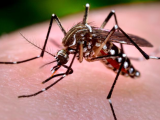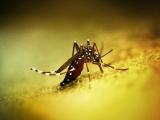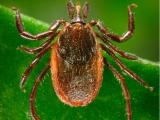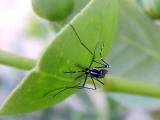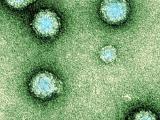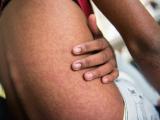The number of chikungunya cases in parts of the Caribbean continued to surge last week, pushing past 170,000 cases, with the first cases confirmed in El Salvador, west of the main outbreak area, and more imported cases detected in the United States and other countries.
The outbreak has grown to 170,566 suspected or confirmed cases of the mosquito-borne disease, which is 35,139 higher than the 135,427 cases reported the previous week, according to a Jun 13 report from the Pan American Health Organization (PAHO). The number of deaths remained the same, at 14.
Over the past few weeks, most new cases are suspected infections reported from the Latin Caribbean countries, such as the Dominican Republic, where suspected cases rose from 52,976 to 77,320 last week. Guadaloupe and Martinique also reported thousands of new cases, but no new case totals were given for Haiti, another country that has recently been hard hit by the outbreak.
In the non-Latin areas that were mainly affected earlier in the outbreak, new cases were reported by Dominica, the Turks and Caicos Islands, and the US Virgin Islands.
The outbreak started in December on the French side of St. Martin. The European Centre for Disease Prevention and Control (ECDC) said Jun 13 in its weekly communicable disease threat update that nearly 150,000 probable and confirmed cases have been reported in the region, which was lower than PAHO's total. It added that most of the affected areas continue to report more cases, but especially Haiti and the Dominican Republic.
The ECDC said the outbreak in still expanding, and it urged health officials to be vigilant for imported cases in tourists returning from the Caribbean.
El Salvador reports first cases
Elsewhere, health officials in El Salvador on Jun 14 confirmed that the virus is spreading in the country, with at least 1,200 people who have been diagnosed with the disease, Agence France-Presse (AFP) reported.
El Salvador appears to be the westernmost area to be affected by the outbreak. Unlike other affected areas, it is in Central America and is located on the Pacific Ocean, not on the Caribbean Sea.
The country's health minister Violete Menjivar, MD, said the positive tests will be confirmed by the US Centers for Disease Control and Prevention (CDC). She told a state-run TV station that cases were found just outside of San Salvador, the country's capital.
Imported cases rise
Two more countries—Venezuela and Brazil—reported imported cases, raising that total from 35 to 59, according to the PAHO report.
At least two more US states reported their first imported cases.
The Rhode Island Department of Health (RDDH) confirmed two chikungunya infections in travelers who returned from the Dominican Republic on May 19 and May 29, according to a Jun 13 statement. The infections were detected after patients presented to their physicians with fever, muscle aches, and joint pains. The RDDH said it is investigating a few more suspected cases.
Meanwhile, the Tennessee Department of Health (TDH) confirmed its first case, in a resident of Madison County, according to a Jun 13 press release. It said multiple people from Tennessee and other states who recently traveled to the Caribbean now have symptoms of the illness. The TDH did not specify what country or island the patient who tested positive for the virus had visited.
State medical entomologist Abelardo Moncayo, PhD, said patients with chikungunya symptoms should minimize their exposure to mosquitoes to reduce the risk of transmission. "A mosquito can pick up the virus from an infected human and infect other people," he said.
Tim Jones, MD, Tennessee's state epidemiologist, said in the statement that the virus is spread by mosquitoes that feed during the day and are found in abundance in Tennessee.
The Rhode Island and Tennessee cases raise the number of US states reporting imported cases to 12, with most cases in Florida, according to a Jun 10 CDC update. The agency said a travel-linked case has been reported in the US Virgin Islands and a locally acquired case has been reported in Puerto Rico.
See also:
Jun 13 PAHO chikungunya update
Jun 13 ECDC weekly communicable disease threat report
Jun 14 AFP story
Jun 13 RDDH statement
Jun 13 TDH statement
Jun 10 CDC update on chikungunya in the Americas


